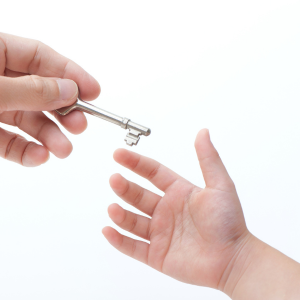
Inheriting a house with a mortgage in New Jersey involves understanding mortgage terms, managing property obligations, and potentially exploring mortgage options. Addressing legal, tax, and financial implications early can prevent complications with the estate and ensure a smooth transition.
Getting to Know Your Inheritance: Property, Probate, and Will Information
Inheriting a house in New Jersey comes with a series of processes that need to be completed. First, access the will to understand what you need to do. In New Jersey, probate court aids in transferring the deceased’s estate to you. An executor is in charge of this process, and, in conjunction with other important documents, the last will and testament, alongside the property documents, completes it.
Grasping New Jersey’s estate law is imperative. If there’s anything not clear concerning the legal steps involved, consider seeking an estate attorney who will guide you through every single one of them.
Assessing the Property: Value, Condition, and Potential Repairs
After determining your inheritance rights, assess how much the property is worth and its current condition. You should obtain a professional appraisal to know the property’s market value. This aids in making a decision whether to retain the property or sell it.
Flaws should be evaluated in terms of how they impact the value of the property in question. An inspector can assist in revealing issues that may be costly in the long run. A detailed appraisal will determine if selling the asset is a better option than retaining it.
Financial Overview: Taxes, Possible Expenses, and Mortgage Details
It’s critical to comprehend your financial responsibilities when inheriting a home with a mortgage. Examine the mortgage’s specifics, such as the payments, interest rate, and balance. For clarification on how to handle the mortgage, speak with the lender.
Keep in mind that taxes and other financial obligations vary depending on the location and value of the property. Planning your finances will be easier if you are aware of these possible costs in advance. To ensure that all of your financial obligations fit within your budget, it is essential to comprehend your entire liability.
For help with the complexities of inheriting a home, Better Cash Buyer can offer guidance and support in making informed decisions.
Managing the Mortgage After Inheritance

Can I Afford the Mortgage Payments? Exploring Your Financial Options
Your financial situation may change if you inherit a mortgage. Determine whether you can afford the monthly mortgage payments first. Make a financial summary that takes into account your earnings, outlays, and outstanding debts. This will assist you in determining whether the mortgage is within your means.
- Budgeting: Examine your expenses and identify areas for cost reduction to free up funds for the mortgage.
- Speak with Your Lender: Discuss financial options like loan restructuring or modification with your mortgage lender. If cost is a concern, they can assist.
- Refinancing: Think about refinancing the mortgage for a lower interest rate, which might reduce your monthly payments.
- Assistance Programs: Look into government or local programs that help homeowners facing financial difficulties.
It’s smart to speak with a financial advisor for advice tailored to your situation.
Mortgage Assumption: Qualifications, Procedure, and Possible Advantages
Taking over the inherited property’s current mortgage is known as mortgage assumption. Determining whether this option is right for you requires knowledge of the eligibility requirements and procedure.
- Eligibility: Verify your ability to take on the mortgage. Typically, lenders require evidence of income and creditworthiness.
- Procedure: Usually, you will have to give the lender financial information and proof of inheritance. Recognize that the due-on-sale clause may cause problems.
- Benefits: If the terms are favorable, assuming the mortgage may be easier than obtaining a new loan. It might also be less expensive because closing costs are avoided.
Talk to the mortgage servicer to fully understand potential liabilities and benefits before proceeding.
Refinancing the Mortgage: Lowering Payments and Improving Terms
Refinancing means replacing your current mortgage with a new one under different terms. This could lower monthly payments or secure a better interest rate.
- Interest Rates: Check current interest rates. Refinancing is a good move if rates have dropped since your original mortgage.
- Terms Improvement: Besides lowering payments, refinancing lets you change the mortgage term length, possibly saving money over the life of the loan.
- Refinancing Options: Discuss options with your mortgage servicer, considering the costs and benefits involved.
Refinancing can ease the financial load of the inherited mortgage and better fit your budget. Consider talking to a mortgage expert to see if refinancing matches your long-term financial goals.
New Jersey’s Inherited Property Laws and Regulations
Managing Probate in New Jersey: Schedule, Needs, and Expenses
In New Jersey, managing the probate process can be difficult. To properly manage the deceased’s estate, executors must adhere to a number of procedures and legal requirements.
- Timeline: The length of the probate process may depend on the complexity of a given estate and any arising disputes. It may take a few months to over a year or more.
- Requirements: Executors have the responsibility of informing beneficiaries and other relevant parties, as well as filing the will with probate court. A complete file with documents, as well as an understanding of the law pertaining to estates, is necessary.
- Costs: Court fees, executor fees, and potential legal fees in the event of a dispute are among the costs. Planning the management of inherited property requires an understanding of these expenses.

Understanding New Jersey Inheritance Laws: Taxes, Ownership, and Liabilities
New Jersey’s inheritance laws have a big impact on how estates are distributed. Understanding these laws enables heirs to efficiently handle their obligations:
- Inheritance Taxes: Depending on the heir’s relationship to the deceased, New Jersey levies inheritance taxes. Heirs are better prepared for future financial obligations when they are aware of these rates.
- Liabilities and Ownership: Depending on the circumstances, heirs may inherit assets with or without liabilities. Determining which assets have debts and associated legal obligations is crucial.
- Estate Tax Considerations: Additional estate taxes may be imposed on estates that surpass specific thresholds. Security can be obtained by consulting experts knowledgeable about New Jersey’s estate tax regulations.
Getting Legal Advice: The Value of a Lawyer in Inheritance Cases
An experienced attorney is invaluable in dealing with inheritance issues:
- Legal Counsel: Lawyers can effectively help you navigate the probate process and provide knowledgeable advice. Their understanding of estate law guarantees adherence to all legal mandates.
- Consultation: You can safeguard your rights during inheritance proceedings by scheduling frequent consultations with legal experts.
- Rights and Representation: Having legal counsel gives you peace of mind by ensuring that you are aware of your rights and responsibilities.
For more information and professional assistance with managing inherited properties, consider consulting with firms such as Better Cash Buyer for guidance on making well-informed decisions. Always make sure that any legal strategies comply with state laws and align with personal circumstances to ensure peace of mind.
Selling Your Inherited Property in New Jersey
Determining Market Value: Appraisals, Comparable Sales, and Pricing Strategies
It is essential to set the correct market value while selling an inherited house in New Jersey. The value is set after performing an appraisal, considering comparable sales, and following appropriate pricing strategies.
- Appraisals: By taking into account factors like condition and market trends, a certified appraiser offers an objective assessment of your property.
- Comparable Sales: To gauge pricing expectations, look at the most recent sales of comparable properties in the area. Setting a competitive price is aided by this.
- Pricing Strategies: Work with a real estate professional to create a pricing plan that attracts buyers and maximizes return, taking into account current demand and market changes.
Including these steps in your estate planning will help you set a realistic market value, which is key for a successful sale in New Jersey’s competitive real estate market.
Which Sales Method to Use: Cash Buyer, Auction, or Traditional Sale
The outcome can be affected by the method you choose to sell your inherited property in New Jersey. These are your choices:
- Traditional Sale: Have a real estate professional list your home for sale. For the best exposure and potential higher offers, it’s perfect.
- Auction: Encourage buyer competition and urgency to boost sales quickly. If interest is low, be mindful that lower prices could result.
- Cash Buyer: If the property has a mortgage or requires significant repairs, this option is appropriate because it expedites the process. Cash buyers typically provide a simpler, faster transaction.
Every approach has benefits and drawbacks. To determine the best course of action for your circumstances and objectives, consult a New Jersey real estate expert.
Resolving Possible Issues and Conflicts
Dealing with Multiple Heirs: Communication, Negotiation, and Legal Solutions
Maintaining open lines of communication is essential when managing an estate with several heirs. Make sure all parties participate in regular discussions first.
- Communication: Schedule frequent meetings to discuss everyone’s concerns and establish clear expectations. This strategy keeps everyone on the same page and helps avoid misunderstandings.
- Negotiation: Be prepared to work out disagreements. Engaging a mediator can assist in promoting dialogue and reaching mutually beneficial agreements.
- Legal Solutions: Legal advice may be required in cases where disagreements cannot be settled amicably through negotiation. The executor can receive advice on their responsibilities and help navigating probate court from an estate law attorney.
Inheritance can better handle estate matters by emphasizing professional assistance and transparent communication.
Managing Property Damage: Estimating Expenses, Obtaining Funding, and Setting Repair Priorities
Property damage can make managing an estate more difficult. Here’s a systematic way to address these issues:
- Cost Assessment: To ascertain the state of the property and the required repairs, conduct a thorough appraisal. Planning is aided by being aware of the necessary costs.
- Securing Financing: To pay for repairs, look into financing options such as home equity loans or mortgages. Before continuing, make sure you understand all the terms.
- Repair Prioritization: Take care of the most important repairs first, such as those that affect structure or safety. If funds permit, take care of aesthetic enhancements after urgent repairs.
This tactic reduces future maintenance issues while simultaneously raising the property’s value.

Recognizing the Tax Repercussions of Capital Gains: Preparing for Tax Obligation at Sale
There may be capital gains tax ramifications when selling an inherited home. Here are some things to remember:
Capital Gains Tax: The profit from the sale of the property is subject to this tax. This is determined by the IRS using the difference between the property’s market value at inheritance and the sale price.
- Tax Liability Planning: Tax liabilities can be decreased through strategic planning. Speaking with a tax advisor can reveal tactics that reduce liability, such as exemptions or deductions.
- Inheritance Taxes and Estate Tax: Depending on the state and estate value, additional taxes may be applicable, such as inheritance or estate taxes.
When selling inherited properties, heirs can better handle their financial obligations by preparing for tax implications.
FAQS
What should I consider when inheriting a house with a mortgage in New Jersey?
Check whether the mortgage is assumable or requires refinancing while inheriting a mortgaged house within New Jersey. You should also check for any existing liens or claims on the property.
How do I manage an inherited house with a mortgage?
You have to decide whether you can afford the monthly payments, prefer renting out, or selling the property. A financial expert will assist you in choosing the best option after analyzing your financial details.
Are there specific guidelines for inheriting a mortgage in New Jersey?
Yes, New Jersey has laws about estate inheritance, including mortgages. You need to know about inheritance taxes and possible due-on-sale clauses. Consulting a local estate attorney is wise.
What are my options after inheriting a house with a mortgage in NJ?
You can take over the mortgage, refinance, sell, or rent the house. Or sell your house fast for cash in Bridgeton or nearby areas. Your decision will depend on the real estate market as well as your specific goals
Is it possible to inherit liabilities such as debts along with a property in New Jersey?
Yes, it is true that inheriting a home may come with an existing mortgage and other financial obligations. Ensure that you check all debts associated with the property so that you do not encounter any financial shocks.
What occurs if I am unable to make a payment on the mortgage of the property home I inherited?
If you can’t afford the mortgage, selling the home, negotiating a loan modification, or contacting the lender to discuss options might be ideal. Remember to make safe decisions for your credit.
Does New Jersey impose a tax on real estate property when it is inherited?
Indeed, New Jersey has both inheritance and estate taxes that might impact you. Knowing these is essential to control possible tax obligations.
How does inheriting a house affect ownership in New Jersey?
When you inherit a house, the title is transferred to you; however, you are still required to pay the mortgage. Double-check that all transfers are legal, and consult a specialized attorney to avoid complications.
For further information on how to effectively manage inherited estates, feel free to contact us for specialized guidance that addresses your unique needs.
Key Insights
- Understanding Inherited Mortgages in New Jersey: When dealing with an inherited mortgage in New Jersey, it’s crucial to follow specific guidelines and legal requirements. Know your options for managing a house with an existing loan.
- Legal Aspects of House Inheritance: New Jersey’s estate planning and inheritance laws can affect how you handle a property with a mortgage. Become familiar with these rules to make informed decisions about real estate inheritance.
- Options for Inherited Properties: If you inherit a house with a mortgage in New Jersey, consider refinancing, assuming the mortgage, or selling the property. Each choice has its own benefits and impacts on the inherited debt. Additionally, if you’re looking to quickly sell the property, you might explore options like sell your home for cash in Burlington or nearby areas. This can provide a fast and hassle-free solution, allowing you to avoid the complexities of traditional home sales and receive a lump sum payment without the delays often involved in the process.
- Debt Related to an Inherited Property: Assessing a mortgaged property’s balance, interest rates, and possible capital gains taxes requires attention to detail. These factors are instrumental in determining your subsequent choices.
- Broad Reach Issues: Explore the various mortgage lending institutions in NJ for HELOCs and reverse mortgages and maintain steady financial stability regarding acquired properties.
- Resolving Mortgage Problems: Inherited mortgage problems should be dealt with promptly to avoid foreclosure and other harsh financial penalties. Custom solutions can be formed with a financial planner or real estate attorney.
- Responsibilities After Inheritance: In New Jersey, possessing a tangible asset means dealing with property taxes, but proper maintenance can defend the value of the stake from a scrupulous investor.
- Property Management Strategies: Depending on the relative value of the stake, managing inherited properties may include leasing or outright selling them, but each approach has implications regarding the granularity of control over personal affairs.
- Collaborating with Other Heirs: If multiple heirs inherit the property, establish clear agreements to manage it cohesively and prevent conflicts.
- Professional Assistance: Consult with New Jersey estate planning professionals or real estate advisors for help with complex legal and financial issues related to inherited properties.
- Educational Resources and Tools: Use online tools and resources to assess your situation, including mortgage calculators and legal advice platforms specific to New Jersey inheritance cases.
Do you need to sell your home? Sell quickly, avoid costly repairs, or prefer a hassle-free sale. Better Cash Buyer is here to help. We offer fair cash offers, handle all the details, and make the process seamless. Ready to sell or have questions? Contact us at (347) 386-2549 for a no-obligation offer. Get started today!
Helpful New Jersey Blog Articles
- How To Execute A Quitclaim Deed For Real Estate In New Jersey
- What to Do If You Inherit a House with a Mortgage in New Jersey
- How to Sell a House With Code Violation in New Jersey
- How to Sell a House with Water Damage in New Jersey
- How to Sell a House Without a Realtor in New Jersey
- How to Sell a Hoarder House in New Jersey
- Selling a House During Divorce in New Jersey
- Selling a House in Probate in New Jersey
- Selling a House with Fire Damage in New Jersey
- Squatters’ Rights in New Jersey
- Can You Sell a House with Tenants in New Jersey?
- Quit Claim Deed in NJ
- Who Pays Taxes When Selling a House in NJ?
- How To Execute A Quitclaim Deed In New Jersey
- Inherited House With Siblings In New Jersey

